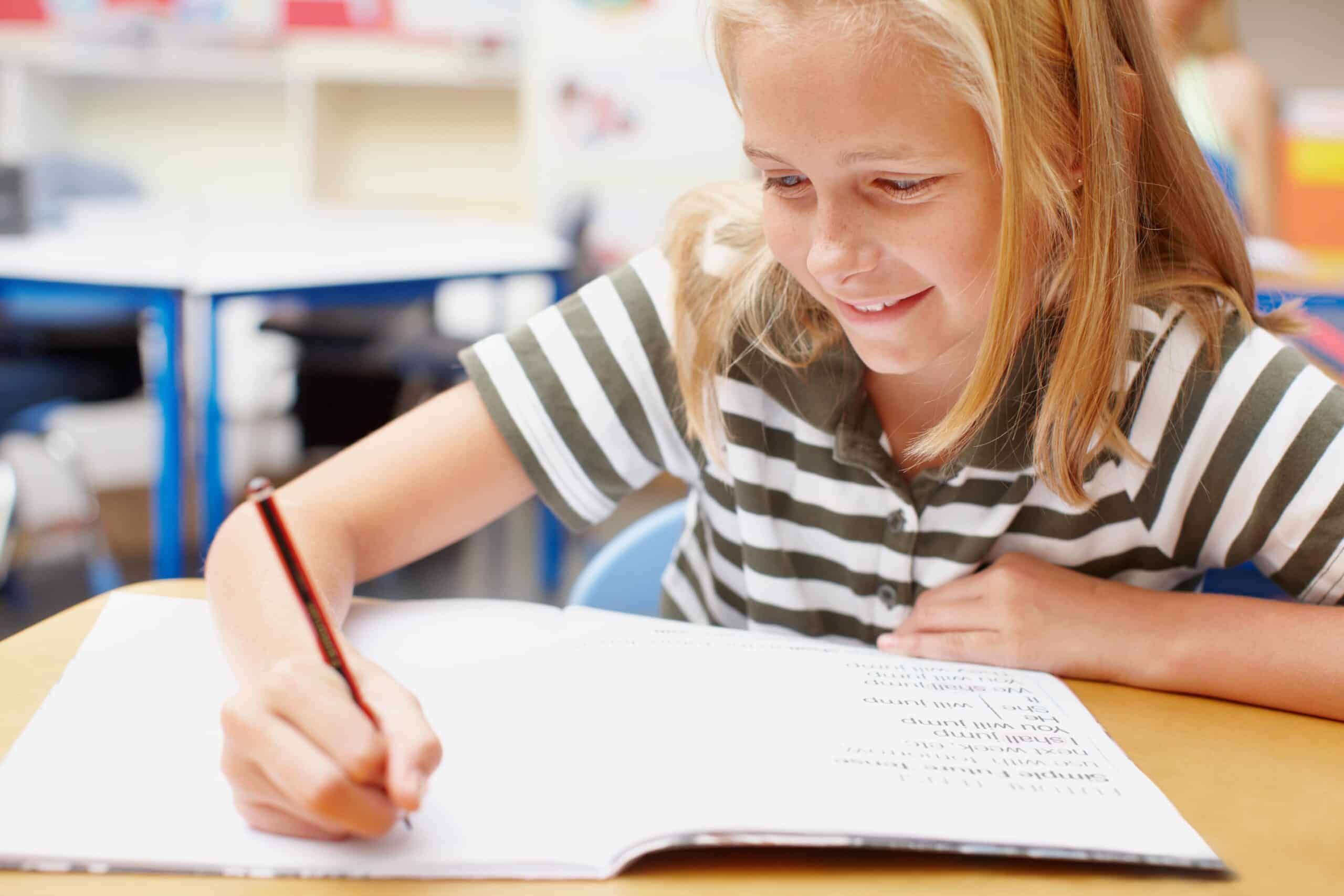
In a development report interview, the teacher, pupil and parents discuss the child’s strengths, weaknesses and learning goals. The documented development report interview in primary school thus replaces or supplements (depending on the federal state) the half-year report in school years 1-3. It is crucial that the teacher conducts the development report interview with the child on an equal footing. Although the parents are present during the discussion, they remain in the background and only listen for the time being. The aim is not to talk about the child, but with them. Depending on the child’s ability to concentrate, a development report interview should last between 30 and a maximum of 45 minutes. As development report interviews replace an interim report with grades, they are not a crisis meeting but focus on the pupil’s individual learning development. The aim is to take stock of the learning status and plan further learning goals. The children should formulate their own learning development goals and plan their development steps in order to take their learning into their own hands.
Development report interviews usually take place once a year at the end of the first half of the school year. Ideally, the meetings should be held shortly before the official date for issuing interim reports. Whether there is a fixed day for all development meetings or whether individual appointments are made between the families and the teacher can vary depending on the primary school.
The regulations for development report interviews vary depending on the federal state. While development report interviews have been mandatory for years in Hamburg, Saxony-Anhalt and Thuringia, Rhineland-Palatinate and Brandenburg rely on a combination of interviews and grades or indicator-based reports, depending on the school year. In Baden-Württemberg und Bavaria the school conferences can decide for themselves whether development report interviews are to be conducted at the school. If parents refuse a discussion, a ‘normal’ grade-based report is issued as an alternative.
The development report interview centres on the child’s individual skills and performance, which should be assessed by both the pupils themselves and the teacher. During the discussion, the learning status, performance and also support needs should become visible. One aim of the development report interview is to introduce the children to a successful assessment of their own performance so that they can reflect on their learning, their progress and their acquisition of skills and become aware of their personal learning processes. They should be actively involved in the reflection process, e.g. by keeping a learning diary in class, as this helps them to develop a positive attitude towards learning and strengthens their confidence in their abilities. The teacher’s preparation is central to the fulfilment of the objectives of a development meeting. The Additio App’s learning and grade management can help with this: Teachers can see all grades, assessments and learning progress in one place. All assessments can be documented quantitatively and qualitatively in the grade management. Development reports can be used to create individual reports on assessments, incidents or skills and to set development goals. The academic progress of pupils can also be easily visualised.
As the development report interview is carried out as an alternative to the classic interim report with grades, all subjects of the last half-year, as well as the child’s development and social behaviour, should be discussed in the interview. As the time frame is limited, it is of course not possible to address all competences, but each subject should be included and a meaningful focus should be set in each case. There should also be room for questions and uncertainties on the part of the child and parents. At the end of the interview, a target agreement is drawn up. This is developed together with the child and, ideally, formulated independently by the child.

The basic procedure of a development report interview should be similar in all federal states and schools, but the implementation and the materials used during the interview can be customised and creatively designed.
Documented development report interviews are a central part of everyday primary school life in some federal states and replace or supplement the familiar, grade-based interim report. The aim of the development report interview is for teachers and pupils to discuss strengths, weaknesses and development potential as equals. The aim is to gain an overview of the performance status and formulate learning development goals. It is particularly important that the teacher prepares and conducts the development report interview well and that the outcome of the interview is positive and motivating for the pupils.